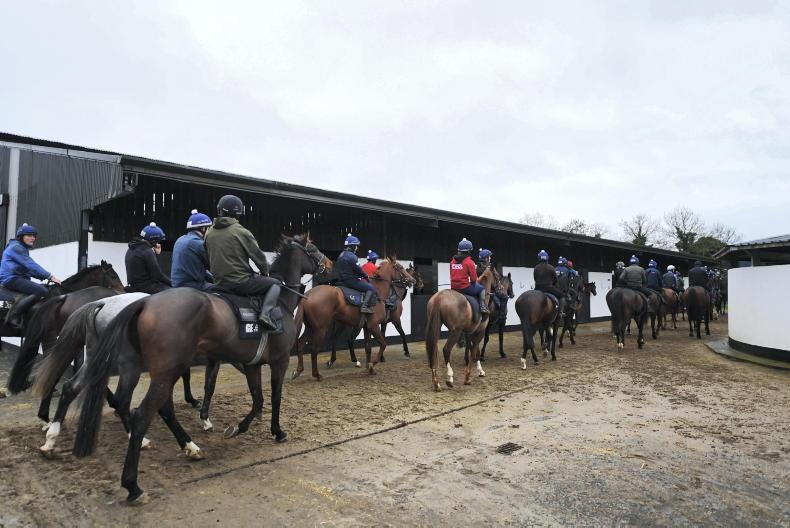RACEHORSE owners should not be surprised to see an increase in training fees this year as trainers face higher costs for feed, fuel, insurance, and probably an increase in stable staff wages too.
Owners have already seen the price of racehorses take a steep jump in the past year. The average price paid at Tattersalls Ireland last year was a record €24,493 – almost 25% higher than in any of the previous four years.
At Goffs the average price was €36,711, up 20% on the year before but still marginally lower than the preceding four years.
Overheads have been climbing too. Michael Grassick, CEO of the Irish Racehorse Trainers Association [IRTA], said: “Diesel went up 13% in 2021, insurance costs are up 30% and I believe feed prices are also about to rise. You could say it’s inevitable that training fees have to go up too. I’m aware of trainers who lowered their fees during the recession in 2008 and never put them back up.”
The IRTA will shortly enter talks with the Irish Stablestaff Association over pay and conditions, with a view to updating the agreement between the two organisations which has not been changed since 2016. Under that agreement staff must be paid at least €10.75 an hour and €50 in expenses for going racing.
Bernard Caldwell, ISA chairman, said: “The hourly rate needs to increase but it’s not all about the money. Stable staff are equally concerned about their working conditions. Is there somewhere to get changed if they get wet? Is there a clean place to eat and have hot food?”
Caldwell described stable staff as “racing’s frontline workers” and said that, while most racecourses provide adequate facilities for them, others need to improve. “Racecourses are getting plenty of money from different sources. There should be no shortage of funds to ensure that stable staff are looked after properly.”
Many trainers have been reporting difficulties in attracting and retaining staff. There was good news for the industry just before Christmas when the Department of Enterprise, Trade and Employment granted 100 visas for non-EU exercise riders.
Elaine Burke of Horse Racing Ireland was involved in the application, along with the IRTA and the Irish Thoroughbred Breeders’ Association. Burke said: “It was a long process, starting in 2018 and stalled by Covid. We had to prove to the Department that we could not source people in Ireland or the EU to fill these highly-skilled roles.
“Eventually we got there and we hope to make another application once these visas are taken. Any employer who wants more information on how to secure a visa is welcome to contact me (email eburke@hri.ie).”
Caldwell does not agree that bringing in stable staff from abroad is the right solution. “Irish stable staff would not be leaving the industry if they were looked after properly,” he said. “I believe that good yards will always find staff. Young people have far more employment options now than they had in the past – racing needs to keep pace with wages and working conditions.”
He added that he would like to see an independent body tasked with inspecting working conditions at racing yards. “The Irish Horseracing Regulatory Board inspections seem to focus on equine welfare issues. I believe they are turning a blind eye to facilities for stable staff. Their welfare is at least as important as the horses.”


 This is a subscriber-only article
This is a subscriber-only article
 It looks like you're browsing in private mode
It looks like you're browsing in private mode









SHARING OPTIONS: